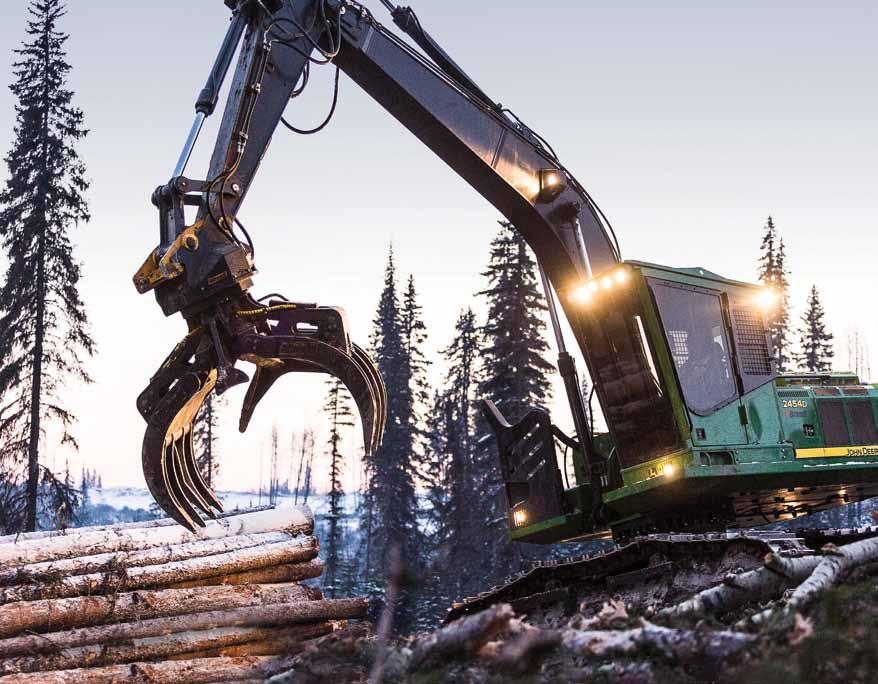“It’s been going on for a long time, and it’s still a problem now,” says IWPA President Russ Cameron. The issue is further complicated by the Softwood Lumber dispute. The complexity of the issues, and the financial penalties that are imposed on the export of finished products into the United States has led to a situation where those with access to most of the fibre—the major licensees—ship it across the border and add the value there, in some cases at sawmills they own themselves. Last year, Western Forest Products finalized the purchase of Columbia Vista Corporation, which owned a sawmill in Washington State. Interfor, one of the world’s largest lumber producers, has sawmills in Georgia, Arkansas and South Carolina, while Canfor has a mill in South Carolina. “While Interfor and other tenured companies already have Washington State facilities doing their value-added work on BC’s unfinished lumber, the straw that broke the camel’s back was Western Forest Products' acquisition of a remanufacturing plant in Arlington, Washington,” says Cameron. “Their stated intention is to ship another 110,000,000 bf a year of BC’s western
red cedar, and the jobs that go with it, to their new facility for value-added processing. Unless we figure out a way to reverse that flow, more will follow.” You cannot blame a publicly traded company for designing a business model that works to its benefit; it’s what business does. But another question is worth asking. The timber resources that are located on public lands belong to all British Columbians; shouldn’t all British Columbians be the ones to derive the most benefit from them? The jobs, whenever possible, should be in Quesnel and Houston, not Washington and South Carolina. However, there is increasing pressures on many fronts to change this trend, at least incrementally. Many groups and politicians want changes made that ensure more accessibility to fibre for local manufacturers, supports and creates local employment, and gets more value for British Columbians from public resources. However, there is a debate as to how such a transition will happen and the timelines needed to make it happen. On June 11, government announced it is moving forward on the following changes to the Manufactured Forest Products Regulation (MFPR).
Introduced in 2003, the MFPR defines the criteria that products must meet to be considered manufactured under the Forest Act. Under the current regulation, logs that are squared off up to a maximum dimension of 43 by 43 centimetres (17 by 17 inches) are categorized as a sawn-wood product and may be exported without further manufacture. As of September 30, the amended regulation will change the maximum dimension of lumber to be considered a sawn-wood product to 30.5 by 30.5 centimetres (12 by 12 inches), requiring further domestic processing of lumber prior to being eligible for export. Additionally, and due to come into effect in December, the regulation amendments will require that in the Coastal area, lumber that is made from Western red cedar or cypress must be fully manufactured to be eligible for export, or the seller or exporter must obtain an exemption from the manufacturing requirement and pay a new fee-in-lieu of manufacture to the Province. While some are cynical that government, any government, will wave a magic (Continued to page 38)
MARINE LIN K TRANSPORTATION
Full Service Marine Transportation Specialists
Creative, cost-effective, and efficient problem solving in Marine Transportation. dispatch@marinelink.ca
www.marinelink.ca
Summer 2020 Truck LoggerBC 35










